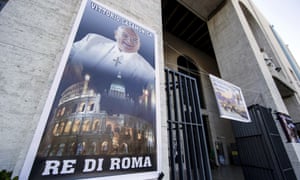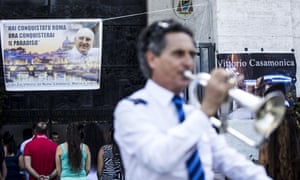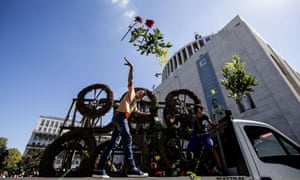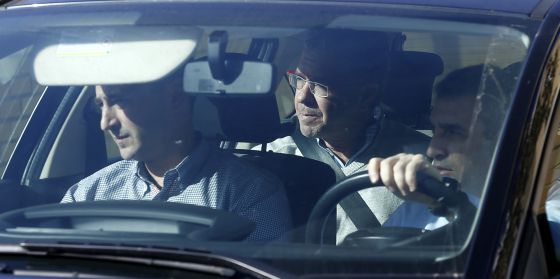CARLOS MENEM AFIRMA QUE NO PUEDE DECLARAR “LO QUE SABE” SOBRE EL ATENTADO A LA AMIA
Con la excusa de la seguridad de Estado
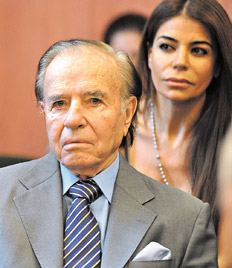
El ex presidente Carlos Menem, acusado por el encubrimiento del atentado a la AMIA.
Imagen: Télam
Omar Daer, defensor del ex presidente en el juicio por el encubrimiento del ataque, dijo que la declaración de su cliente sería una amenaza para los intereses nacionales y romper la convivencia pacífica con otros países. La querella de Memoria Activa rechazó el planteo.
 Por Ailín Bullentini
Por Ailín Bullentini
“Lo que sabe” el ex presidente Carlos Menem sobre el atentado a la AMIA implica “una amenaza para la seguridad del Estado”, según advirtió su abogado defensor, Omar Daer, durante la tercera audiencia del juicio que juzga a su cliente y a otros doce imputados –el ex juez federal Juan José Galeano y los ex fiscales Eamon Müllen y José Barbaccia, entre ellos– por encubrir el ataque a la sede porteña de la mutual judía, hace 21 años. Desde Memoria Activa no lo dejaron pasar. “Si sabe muchas cosas y las calló durante 21 años, que las diga de una buena vez en honor a las víctimas”, enfatizó el abogado Rodrigo Borda. Así como la de Menem, las defensas de Galeano, los ex fiscales, el ex titular de la SIDE Hugo Anzorreguy y el duplicador de autos Carlos Telleldín solicitaron la nulidad de las acusaciones en contra de sus clientes. La fiscalía y algunas de las querellas rechazaron los planteos. El juicio retomará su curso en dos semanas; entonces, el Tribunal Oral Federal N°3 resolverá las cuestiones.
La expectativa por las declaraciones indagatorias atravesó el inicio de la audiencia de ayer, la tercera del debate en el que el TOF 3 definirá qué grado de participación tuvieron los 13 acusados –a los ex funcionarios estatales y judiciales se le suman el ex dirigente de la DAIA Rubén Beraja, la ex mujer de Telleldín Ana María Boragni y su ex abogado Víctor Stinfale– en la decisión de correr a la “pista siria” de la línea de investigación del atentado y la invención y concreción de una “pista falsa” que la reemplazara. La posibilidad de que el ex presidente hablara ante el TOF quedó trunca cuando el secretario del tribunal informó que la videoconferencia con La Rioja no había podido establecerse “por problemas técnicos”. Por su parte, el abogado de Anzorreguy planteó que su cliente se debía internar –justo ayer a las 10– para someterse a unos estudios médicos. Boragni tampoco estuvo presente. También alegó problemas de salud. El cierre de la jornada estuvo a cargo de la fiscalía, para la que ninguno de los planteos esgrimidos por las defensas constituyeron “cuestiones preliminares” y rechazó todos los argumentos. En la mayoría de los casos, por “no advertir cuál sería el perjuicio que se ocasionaría a las partes”. El Ministerio de Justicia recordó que “hace 15 años que se sustancia la causa, se abusó de los recursos procesales” por parte de los acusados. La semana próxima no habrá audiencia, con lo cual el resto de las querellas continuará con sus respuestas a los planteos de las defensas a principios de septiembre.
El argumento de Daer para justificar sus planteos previos al debate fue que se ha violado el debido proceso en contra de Menem, que el hecho por el que se lo acusa ha prescripto y que la acusación en su contra es nula. Como lo había hecho la defensa de Galeano horas antes, criticó la lectura de los resúmenes de los requerimientos de las querellas y el Ministerio Público Fiscal, y reclamó una “lectura clara de la requisitoria fiscal y la prueba que hay en contra” de su cliente. Luego empezó a dar vueltas sobre el procesamiento del ex presidente, a explicar por qué está “mal hecho”, hasta que la querella de los ex policías bonaerenses José Ubeira reclamó: “No estamos acá para hablar del procesamiento”.
El TOF le dio la razón y Daer culminó su exposición, no sin antes tirar una bomba de humo que, por un instante, permita confundir el eje del debate: el ex presidente está acusado de desviar la investigación sobre el atentado a la AMIA por lo que se le imputan los delitos de encubrimiento, abuso de autoridad, falsificación de elementos de prueba. Daer planteó que Menem “tuvo acceso a información de la investigación” del atentado mientras fue primer mandatario, por haber “permitido intervenir y estar cerca de” los servicios secretos de diferentes países, entre los que mencionó Estados Unidos, Reino Unido e Israel. Su declaración al respecto “es una amenaza para la seguridad del Estado”, advirtió. “Si no se lo releva de la obligación de mantener el secreto –decisión que le atribuyó al Congreso– y no se toman los recaudos necesarios, su declaración podría romper la convivencia pacífica con algunos Estados intervinientes (en el hecho), ya sea presuntos partícipes del atentado o investigadores.”
A su turno, la fiscalía rechazó la advertencia del defensor de Menem y recordó que el propio tribunal, por “falta de fundamentación y de especificación de los peligros posibles”, había actuado de igual manera cuando la defensa había planteado el secreto de Estado del ex mandatario. Sin embargo, la respuesta más dura provino de la querella de Memoria Activa, que además de recordar el mismo argumento que la fiscalía desafió al ex presidente: “Si Menem sabe muchas cosas del atentado y las calló durante 21 años quizá este juicio sea el espacio en el que, por honor a las víctimas, las diga de una vez para que ellas puedan encontrar un mínimo resarcimiento”, advirtió Borda. “Que diga lo que sabe de una vez por todas”, concluyó.
Los abogados de Galeano, Daniel Rubinovich y Darío Vezzaro, inauguraron los planteos preliminares, que en su mayoría fueron largueros, repletos de ejemplificaciones y justificaciones. Respecto de Galeano, Rubinovich apuntó que la acusación contra su cliente por el pago de los 400 mil dólares a Telleldín para que “inventara” una historia que permitiera desviar la investigación judicial del atentado es “cosa juzgada”.
El abogado se refirió al sobreseimiento que el ex juez Gabriel Cavallo le había dictado a su cliente cuando lo investigó por los videos que lo mostraban negociando con el duplicador de autos en su despacho salieron a la luz. Ese sobreseimiento había quedado firme, con fallo de Corte Suprema incluido. Pero luego llegó el juicio que dirigió el TOF 3 –en el que los imputados fueron cuatro de la quincena de ex bonaerenses que hoy son querellantes–, anuló el debate y advirtió sobre el armado de una pista falsa. Entonces, la Justicia comenzó a investigar la mentira y Galeano estaba en la mira. Su defensa sacó la carta del sobreseimiento; los familiares de las víctimas del atentado, el Ministerio de Justicia y la querella de los ex policías bonaerenses plantaron que aquella sentencia era “injusta”, un argumento que se encuentra en la base del concepto de “cosa juzgada írrita”. El juez federal a cargo de la instrucción, Ariel Lijo, les dio la razón a las querellas. Años después, las Cámaras actuaron igual, y así también la Corte Suprema, en abril pasado. La defensa del ex juez imputado dijo ayer que no existe tal cosa en Derecho Penal. La fiscalía rechazó la cuestión recordando el fallo de la Corte.
Luego, consideró que los otros delitos de los que se lo acusa a Galeano –encubrimiento, abuso de autoridad, ocultamiento y destrucción de elementos de prueba, privación ilegítima de la libertad– “no deben ser tomados como delitos de lesa humanidad”, ya que no cumplen con los requisitos de esa definición, según el Estatuto de la Corte Penal Internacional. Luego, Vezzaro solicitó la nulidad de los requerimientos de elevación a juicio de todas las partes acusadoras por considerar que las síntesis que se leyeron en el marco del debate fueron “carentes de claridad, precisión y circunstanciación de los hechos”. “¿Cuánta relajación del Código Procesal Penal se puede permitir en hechos como éste?”, se preguntó el defensor. Borda retrucó que “suena raro que se sientan agraviados por lecturas de síntesis de acusaciones de las querellas cuando el Código no prevé que se lea nada de esas partes”.
La defensa oficial de los ex fiscales Eamon Müllen y José Barbaccia solicitó la nulidad parcial de los requerimientos de las querellas por entender que todos recurren a la “falta de acción”. “Citan hechos en los que no fueron ofendidos”, explicó el defensor Santiago Marino Aguirre en el planteo al que adhirieron las defensas de Menem, Anzorreguy y Telleldín. Para la defensa, los familiares de las víctimas del atentado pueden actuar como querellantes respecto del encubrimiento del atentado, pero no de la privación ilegítima de la libertad y la coacción a dos testigos en los primeros años de la causa; tampoco podrían acusar por peculado porque “no está bajo su tutela la administración del erario público” y lo mismo ocurre con la fiscalía. La “falta de acción” afecta el derecho a defensa de los ex fiscales ya que “no es lo mismo defenderse de una querella que de seis”, apuntó Marino Aguirre. Para la fiscalía, esa interpretación es “restrictiva”, por lo que solicitó su rechazo. Desde el Ministerio de Justicia destacaron que se trata de una “maniobra general integrada por muchas conductas delictivas imposible de escindir”.
http://www.pagina12.com.ar/diario/elpais/1-279797-2015-08-21.html
